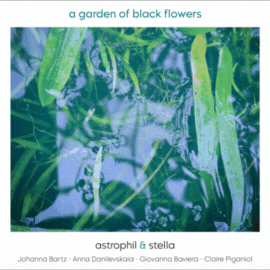Wonder Women – nicht die verschiedenen Darstellerinnen der Comic-Figur mit den übernatürlichen Kräften sind hier gemeint, sondern Komponistinnen des 17. Jahrhunderts, die zumeist ein Schattendasein führten und zum Teil noch immer führen. Diesen Superfrauen widmet Christina Pluhar ihr neues Album. Dass deren Musik auch über gewisse Superkräfte verfügt, macht die Theorbe-Spielerin zusammen mit ihrem Ensemble L’Arpeggiata deutlich. Die Sogkraft der Kompositionen und ihrer Interpretationen verfängt von der ersten Note an. Es beginnt mit einem mexikanischen Volkslied, schwungvoll, dynamisch, mit vertrauten Rhythmen. Der Brückenschlag ins 17. Jahrhundert ist gelungen, eine Reise zu dieser Musik aus ferner Zeit, die uns dennoch so nah ist – dank der passenden, einfühlsamen Instrumentierung. Mal rückt eine zarte Arie in den Dunstkreis eines kunstvollen Chansons, mal ist sie eher als Jazz-Ballade angelegt.
Christina Pluhar und L’Arpeggiata erzwingen jedoch nichts, musizieren stets im Respekt des Urtextes und untermauern so die Zeitlosigkeit dieser Musik. Hinzu kommt eine ungemeine Lust am Experimentieren mit Klangfarben und Texturen von Stimmen und Instrumenten. Es entsteht ein abwechslungsreicher Farbenreichtum an Tönen und Stimmungen sowie der Eindruck von phantasievollen und klugen Improvisationen.
Wonder Women – We are not talking about women with supernatural powers, but about female composers of the 17th century, most of whom led, and some of whom still lead, a shadowy existence. Christina Pluhar dedicates her new album to these superwomen. Together with her ensemble L’Arpeggiata, the theorbo player makes it clear that their music also possesses certain superpowers. The power of the compositions and her interpretations is captivating from the first note. It begins with a Mexican folk song, lively, dynamic, with familiar rhythms. The bridge to the 17th century is successful, a journey to this music from a distant time, yet so close to us – thanks to the appropriate, sensitive instrumentation. Sometimes a delicate aria takes on the air of an artistic chanson, sometimes it is more like a jazz ballad.
But Christina Pluhar and L’Arpeggiata do not force anything, they always play with respect for the original text and thus underline the timelessness of this music. In addition, there is immense pleasure in experimenting with the timbres and textures of voices and instruments. The result is a varied and colorful wealth of tones and moods, as well as the impression of imaginative and clever improvisations.

























